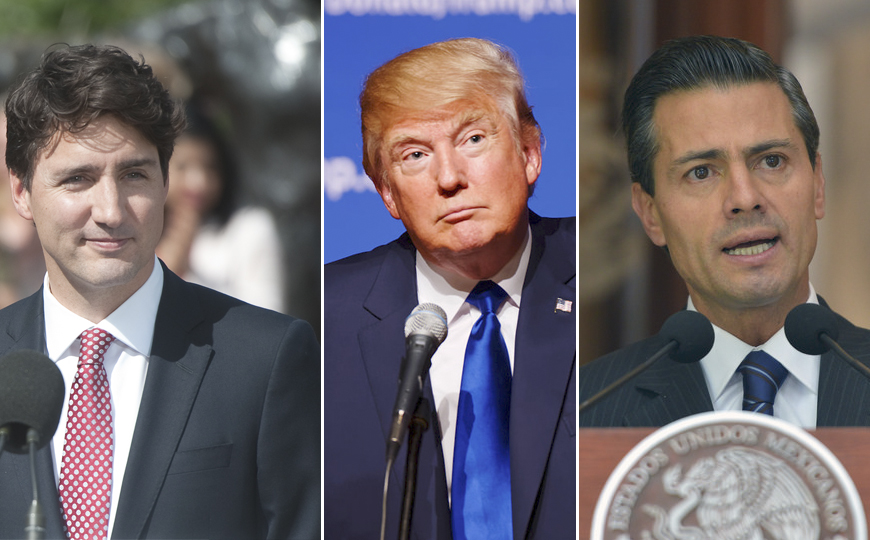After the conclusion of the fourth round of the renegotiation of the NAFTA Agreement with the inability of the three countries’ negotiators to agree on virtually anything and the reiterated threat of Donald Trump to withdraw from further negotiations during the upcoming fifth round, starting October 29th in Mexico City, there has been a building sense of alarm in the three countries.
The authors have noted, with some concern, that in Mexico there now seems to be the belief in government and in the news media that if Trump should withdraw his team from further negotiations, it would thereby constitute the withdrawal of the U.S. from the entire NAFTA Agreement. Nothing could be further from the truth!
Under U.S. Federal Law only the U.S. Congress is empowered to authorize that final step and must do so by special federal legislation through majority vote in both Houses of Congress. The U.S. is one of the very few countries in the world who classify international treaties into two generic types: 1) Self-executing Treaties, which require only the signature of the President and ratification by the Senate in order to automatically become supreme law of the land. 2) But then there are also Non-self-executing Treaties, a concept first established by the Federal Courts in 1829 in the case of Foster v. Neilson (27 U.S. 253) which requires additional legislative action by Congress in order for the Treaty to become law: Free Trade Agreements fall under this category. After the NAFTA Agreement had been signed in 1994, it required an Act of Congress to incorporate the entire text of 786 pages, word for word, into the Federal Statutes thereby converting the treaty into operational law. It would again require an act of congress to withdraw from that treaty.
So now the question presents itself: Why precisely are Free Trade Agreements non-self-executing in the U.S.? The answer is found in Article 1, Section 8 of the Constitution of the United States – the so-called Commerce Clause – which grants Congress the exclusive power to regulate commerce with foreign nations and among the several States. Were Trump to unilaterally invoke the Termination Clause of the NAFTA Agreement, he would be violating the Constitution of the United States – an impeachable offense !
If, however, he would solicit enabling legislation from Congress to withdraw the U.S. from NAFTA, there is very serious doubt that Congress would accede to that request given the current overwhelming lobbying campaign by business and industry in defense of NAFTA.
Despite all of this, Mexico will begin the fifth round of negotiations, but we still do not know how we will reach the seventh and final round in Washington. We considered that from the first moment that we knew that we were bound to sit down at the negotiating table, from that moment on we had to start working on Plan B, which is to stick to the tariffs promoted by the WTO. However, although on average there is a tariff of 3 to 6%, the truth is that there are sensitive sectors and products in which taxation goes further and in any case our exports lose competitiveness (which can only be countered by a devaluated peso that makes our exports cheaper and with that to compensate this loss of competitiveness). The truth is that, to start Plan B, Plan C is needed in which the main objective is to increase the competitiveness of the productive sectors. The task is not easy, especially since we first must end the serious problems that afflict this country: corruption, delinquency and lack of leadership.




